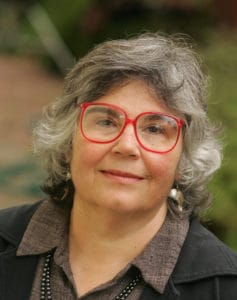From the Executive Director: Coalition and labor unions have long history
 Coalition and labor unions have long history
Coalition and labor unions have long history
from Executive Director Sara Patton
%CODE1%Of the 38 members of the Coalition listed on the inside cover of the 1982 Model Plan, five were labor unions: Communications Workers of America #9103 (Wash.), International Longshoremen’s and Warehousemen’s Union #21 (Wash.), Service Employees International Union (NW States Council), and United Food and Commercial Workers #1092 (Ore.) and #1001 (Wash.).
The 1982 Model Plan was the Coalition’s first great success: it served as a model for the very first Northwest Conservation and Electric Power Plan issued by the Northwest Power Planning Council in 1983. Our model ensured that the regional plan relied on conservation to meet new demand.
The Coalition has continued to influence the regional plans from the agency now known as the Northwest Power and Conservation Council. Witness the impact of our Bright Future report and our members’ activism on the Sixth Plan!
Through it all, the Coalition and organized labor have maintained a complex relationship. In the ’80s we and the Steelworkers sometimes found ourselves on opposite sides of the table because the union worried Bonneville Power Administration’s energy efficiency expenditures would raise rates for aluminum plants that employed its members. But in the ’90s, with deregulation bearing down on all of us, the United Steelworkers joined the Coalition and worked with allies in Save Our wild Salmon for a clean and affordable energy future for all.
The Pacific Northwest Regional Council of Carpenters, the Steelworkers, the Laborers’ International Union of North America and the Apollo Alliance now represent organized labor on the Coalition Board. And we work closely with other unions on myriad issues, including the famously successful negotiations to transition Washington state’s TransAlta power plant off of coal. The Coalition and our labor members and allies know energy efficiency builds good jobs directly, but even more good jobs indirectly by leaving more money in the pockets of consumers and businesses.
We know that renewable energy also produces good jobs. But we also know that transitions from old coal plants and salmon-killing hydroelectric dams can be painful for workers and communities. Our Coalition helps us keep the dialogue and relationships going that find solutions so we can celebrate the new jobs and achieve just transition for the jobs that disappear.



 Coalition and labor unions have long history
Coalition and labor unions have long history